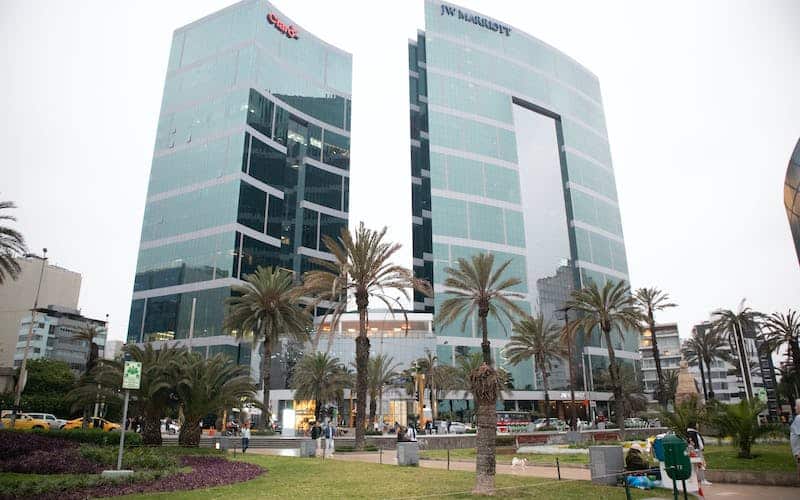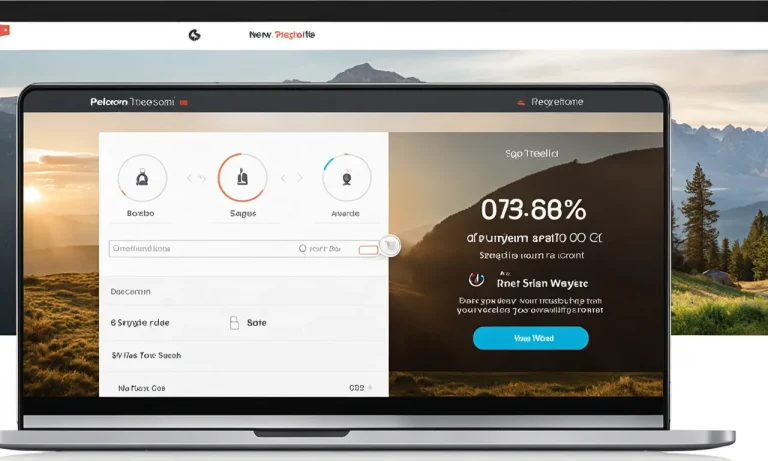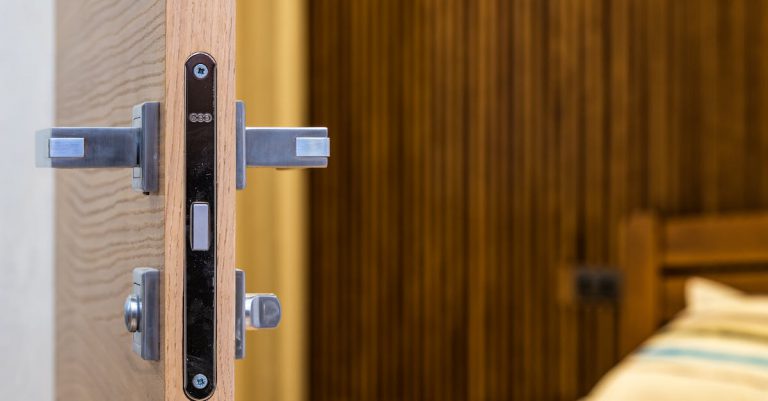With over 7,000 properties globally, Marriott International encompasses an enormous portfolio of hotel brands and franchises.
But if you’ve ever stayed at a Marriott-branded hotel, you may have wondered – who actually owns and runs these franchise locations? Is Marriott itself the owner and operator, or does the brand license its name out to independent franchisee partners?
If you’re short on time, here’s a quick answer: While Marriott International owns the brand and oversees its operation, individual Marriott-branded hotels can be owned and operated by either Marriott International itself or independent entities under franchise agreements.
Marriott’s Core Businesses
Marriott International, a global leader in the hospitality industry, operates a diverse portfolio of businesses that encompass various aspects of the lodging industry. These businesses include hotel operations, franchise partnerships, and licensing agreements.
Marriott operates, franchises, and licenses lodging properties
Marriott is not just a single entity that owns and operates all of its hotels. Instead, it has a multi-faceted approach to its business model. Marriott operates some hotels directly, meaning it owns and manages them. These properties are often flagship hotels or properties in key locations that Marriott wants to have complete control over.
In addition to operating its own hotels, Marriott also franchises its brand to independent hotel owners. This means that individual hotel owners can become part of the Marriott family by meeting certain criteria and adhering to the brand standards.
Franchisees benefit from the recognition and reputation of the Marriott brand, while Marriott earns revenue through franchise fees and royalties.
Furthermore, Marriott licenses its brand to other companies that want to use the Marriott name for their hotels. These licensees pay a fee to Marriott for the right to use the brand, but they maintain ownership and operational control of the properties. This allows Marriott to expand its presence in markets where it may not have a direct presence.

Manages and franchises over 30 leading hotel brands
Marriott is known for its extensive portfolio of hotel brands, each catering to different segments of the market. The company manages and franchises over 30 leading hotel brands, including well-known names such as Marriott Hotels, Sheraton, Westin, Ritz-Carlton, and Courtyard.
By offering a wide range of brands, Marriott is able to cater to diverse customer preferences and market segments. From luxury resorts to budget-friendly options, Marriott has a brand to suit every traveler’s needs. This extensive brand portfolio has contributed to Marriott’s success and global recognition in the hospitality industry.
Subsidiaries handle timeshare properties and lodging services
In addition to its core hotel operations, Marriott also has subsidiaries that handle other aspects of the lodging industry.
One such subsidiary is Marriott Vacations Worldwide, which manages the company’s timeshare properties. Timeshare ownership allows individuals to purchase a share of a vacation property and have the right to use it for a certain period each year.
Marriott Vacations Worldwide operates various timeshare resorts around the world, providing customers with the opportunity to experience vacation ownership. This subsidiary not only manages the properties but also handles sales, marketing, and customer service related to timeshare ownership.
Marriott also has subsidiaries that provide a range of lodging services, such as property management, procurement, and technology solutions. These subsidiaries support the overall operations of Marriott’s hotels and ensure that they run smoothly and efficiently.
A Mix of Owned, Managed, and Franchised Hotels
Marriott Hotel franchises are a combination of owned, managed, and franchised hotels. This diversity allows Marriott to expand its brand presence and cater to different markets and customer preferences.
Let’s take a closer look at the breakdown of these different types of hotels within the Marriott portfolio.
Around 20% of hotels are owned or leased by Marriott
Marriott owns or leases approximately less than 5% of its hotels worldwide. These owned properties give Marriott full control over the operations and management of the hotels. This means that Marriott is responsible for all aspects of the hotel, including staffing, maintenance, and guest services.
By owning a significant portion of their hotels, Marriott can maintain consistent quality standards and ensure a seamless experience for guests across their owned properties.
Around 10% are managed but owned by third-parties
In addition to their owned hotels, Marriott also manages a portion of their hotels that are owned by third parties. These hotels are typically owned by real estate investment companies or other hospitality companies who have chosen Marriott to manage their properties.
Marriott’s management expertise allows them to optimize operations and deliver strong financial performance for these third-party owners. This arrangement benefits both the property owners and Marriott, as it allows Marriott to expand their brand presence without the financial burden of owning the property outright.
The majority (70% or more) are franchised locations
The largest portion of Marriott Hotel franchises, approximately 70%, are franchised locations. Franchisees are independent business owners who operate under the Marriott brand and benefit from its established reputation and resources.
Franchisees pay a fee to Marriott for the right to use the brand name, marketing support, and access to the reservation system. In return, Marriott provides guidance and support to ensure that the franchisees maintain the brand standards and deliver a consistent guest experience.
This franchising model allows Marriott to rapidly expand its global footprint and reach new markets without the need for significant capital investment.
The Franchisee-Franchisor Relationship
Marriott hotel franchises are owned and operated by individual business owners, known as franchisees. These franchisees enter into a contractual agreement with Marriott International, the franchisor, to use the Marriott brand and operate hotels under its standards and guidelines.

Franchisees pay licensing fees for the brand and systems
As part of the agreement, franchisees pay licensing fees to Marriott in exchange for the right to use the well-established and recognized Marriott brand.
These fees allow franchisees to benefit from the brand’s reputation, global marketing strategies, and customer loyalty. The fees also cover the use of Marriott’s reservation system, technology platforms, and other operational systems that help streamline hotel operations.
According to Marriott’s official website, the brand’s franchise fees are determined based on various factors such as the size and location of the hotel, market demand, and other financial considerations. The fees may also include ongoing royalties based on a percentage of the hotel’s revenue.
Marriott provides franchisee support, training, and inspections
Marriott takes an active role in supporting its franchisees by providing training programs and ongoing support.
The franchisor offers comprehensive training that covers various aspects of hotel operations, including guest services, sales and marketing, revenue management, and quality assurance. This helps ensure that franchisees are equipped with the necessary skills and knowledge to operate their hotels successfully.
Marriott also conducts regular inspections to ensure that franchisees are adhering to the brand’s standards and guidelines. These inspections help maintain consistency in the quality of service and amenities across all Marriott hotels. Franchisees receive feedback and guidance to address any areas that may require improvement.
Franchisees operate hotels according to brand standards
One of the key responsibilities of Marriott franchisees is to operate their hotels in accordance with the brand’s standards. This includes maintaining the quality of accommodations, providing exceptional customer service, and upholding the brand’s values and reputation.
Franchisees are required to follow Marriott’s brand standards, which cover areas such as guest experience, cleanliness, safety, and environmental sustainability. These standards help ensure a consistent experience for guests regardless of the location they choose to stay in.
Franchisees also benefit from Marriott’s global marketing and advertising campaigns, which help drive business to their hotels. The brand’s strong presence in the hospitality industry and its loyal customer base contribute to the success of Marriott franchisees.
Types of Marriott Franchisees
Individual entrepreneurs and small partnerships
One type of Marriott franchisee is made up of individual entrepreneurs and small partnerships. These individuals are often passionate about the hospitality industry and have a strong desire to run their own hotel.
They invest their own capital and take on the responsibility of managing and operating the franchise. This type of franchisee allows for a more personal touch and hands-on approach, as the owners are directly involved in the day-to-day operations of the hotel. They may have a single property or a small portfolio of hotels under their ownership.
Large real estate investment groups
Another type of franchisee that operates Marriott hotels is large real estate investment groups. These groups have the financial resources to invest in multiple properties and often have a diverse portfolio of hotels across different brands and locations.
They see hotels as a profitable investment opportunity and work closely with Marriott to ensure the success of their franchises. These groups typically have a team of professionals who specialize in hotel management and operations, allowing for efficient and effective management of their properties.
Domestic and international operators
Marriott franchisees also include domestic and international operators. These operators may be independent hotel companies or hospitality management companies that operate multiple hotels under various brands, including Marriott.
They have the expertise and infrastructure to manage hotels effectively, ensuring a high level of service and guest satisfaction. These operators often have a strong understanding of the local market and are able to cater to the specific needs and preferences of their guests.
They work closely with Marriott to uphold the brand standards and deliver a consistent experience across their properties.
It’s important to note that while Marriott owns and operates some of its hotels directly, the majority of Marriott hotels are owned and operated by franchisees. This allows Marriott to expand its brand presence and reach more markets while leveraging the expertise and resources of its franchise partners.
If you want to learn more about Marriott franchise opportunities, you can visit Marriott’s official franchise website for more information.

Pros and Cons of Franchise Ownership
Benefits include brand recognition and corporate support
Owning a Marriott Hotel franchise comes with several benefits. One of the major advantages is the instant brand recognition that comes with being part of a well-established and respected global hospitality brand.
Marriott is known for its high standards of quality and service, which can attract a loyal customer base. Additionally, owning a franchise comes with the support of the corporate team.
They provide training, marketing materials, and ongoing assistance to ensure the success of the franchisee. This support can be invaluable, especially for first-time business owners.
Challenges include initial investment and ongoing fees
While there are many benefits to owning a Marriott Hotel franchise, there are also some challenges to consider. One of the main challenges is the initial investment required to become a franchisee. The cost can vary depending on location and the size of the property, but it is generally a significant sum.
In addition to the initial investment, franchisees also have to pay ongoing fees to the corporate office. These fees can include royalties, marketing fees, and other expenses associated with being part of the franchise system.
It’s important for potential franchisees to carefully consider their financial situation before committing to a Marriott franchise.
Model allows entrepreneurs to capitalize on trusted brand
The franchise model allows entrepreneurs to benefit from the established reputation and customer trust of a well-known brand like Marriott. By becoming a franchisee, individuals can tap into a proven business model and leverage the brand’s marketing efforts.
This can save time and resources that would otherwise be needed to build a brand from scratch. Furthermore, being part of a larger franchise network can also provide networking opportunities and access to resources that might not be available to independent hotel owners.
Conclusion
While Marriott International owns a portion of their hotels directly, the vast majority are actually owned and operated by independent franchisees who license the brands.
These franchisees run the hotels according to Marriott’s standards and systems in exchange for the benefits of an established name.
This franchise model has fueled Marriott’s global expansion while allowing entrepreneurs and investors to get into hospitality under a major brand.
In summary, Marriott relies heavily on franchising, with over 70% of hotels being independently owned and operated by franchisees. These owner-operators cover the costs but reap the rewards of leveraging Marriott’s trusted, market-tested branding and management expertise.






